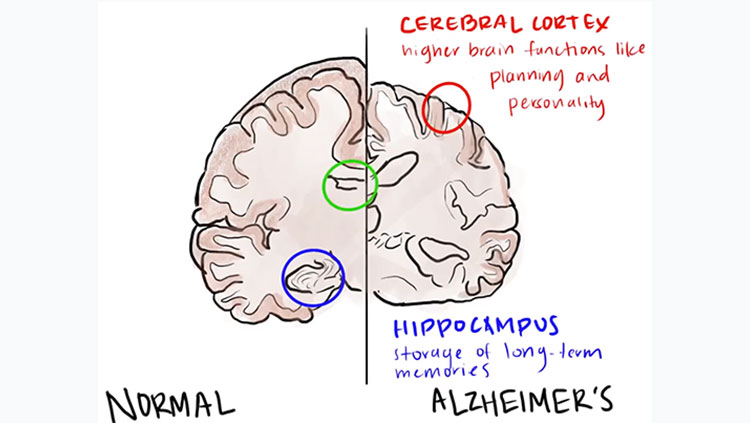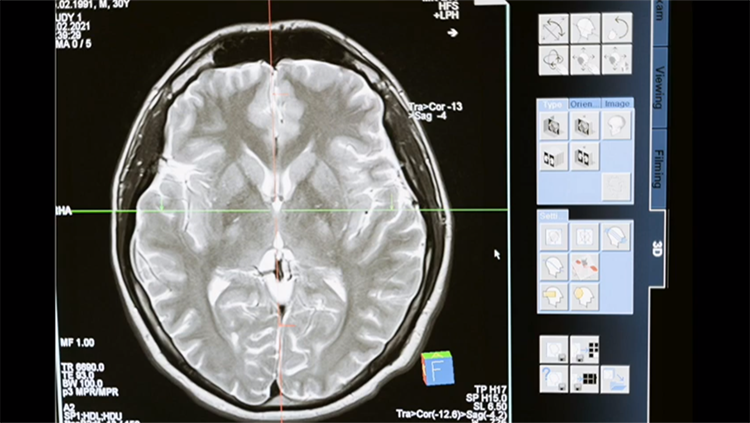Alzheimer's Disease: Latest Research and Treatments
- Published1 Apr 2012
- Reviewed1 Apr 2012
- Source BrainFacts/SfN
Currently approved treatments for Alzheimer’s disease do not modify the course of the disease and offer only mitigation of some symptoms, such as agitation, anxiety, unpredictable behavior, sleep disturbances, and depression.
Five drugs have been approved by the FDA to treat Alzheimer’s. Four prevent the breakdown of acetylcholine, a brain chemical important for memory and thinking. The fifth regulates glutamate, a brain chemical that may cause brain cell death when produced in large amounts. These agents temporarily improve memory deficits and provide some symptomatic relief but do not prevent progression of the disease. Several other approaches, such as antioxidants, are being tested.
An exciting area of research is the introduction of Alzheimer’s disease-causing genes in mice. These mice, carrying mutant genes linked to inherited Alzheimer’s, develop behavioral abnormalities and some of the microscopic changes in tissue structure that occur in humans. It is hoped that these mouse models will prove useful for studying the mechanisms of the disease and testing novel therapies, although appropriate caution must be taken. Experimental therapies in models of other neurodegenerative diseases — amyotrophic lateral sclerosis, for example — have been effective in mice with the disease but not in humans.
Researchers have begun to modulate the actions of genes that play critical roles in the production of amyloid in animal models. These genes encode beta and gamma secretases, which cut amyloid peptide from a larger protein. The amyloid peptide is then released from the neuron into the space around synapses, where it can accumulate and form Alzheimer’s disease plaques. Amyloid-destroying enzymes, known as alpha secretases, break up the amyloid peptide, preventing amyloid accumulation. Anti-amyloid therapies for Alzheimer’s aim either to remove existing amyloid or decrease production of new amyloid.
Within the past three to five years, greater appreciation has developed for the surprisingly important roles that diet and lifestyle play in determining risk for Alzheimer’s disease. Cognitive activity, physical activity, and heart-healthy diets lower the risk for Alzheimer’s, while obesity, high blood pressure, high cholesterol, metabolic syndrome, and diabetes raise the risk. Some evidence indicates that successful management of these cardiovascular risks can delay the onset or slow the progression of dementia.
CONTENT PROVIDED BY
BrainFacts/SfN
Also In Neurodegenerative Disorders
Trending
Popular articles on BrainFacts.org
















